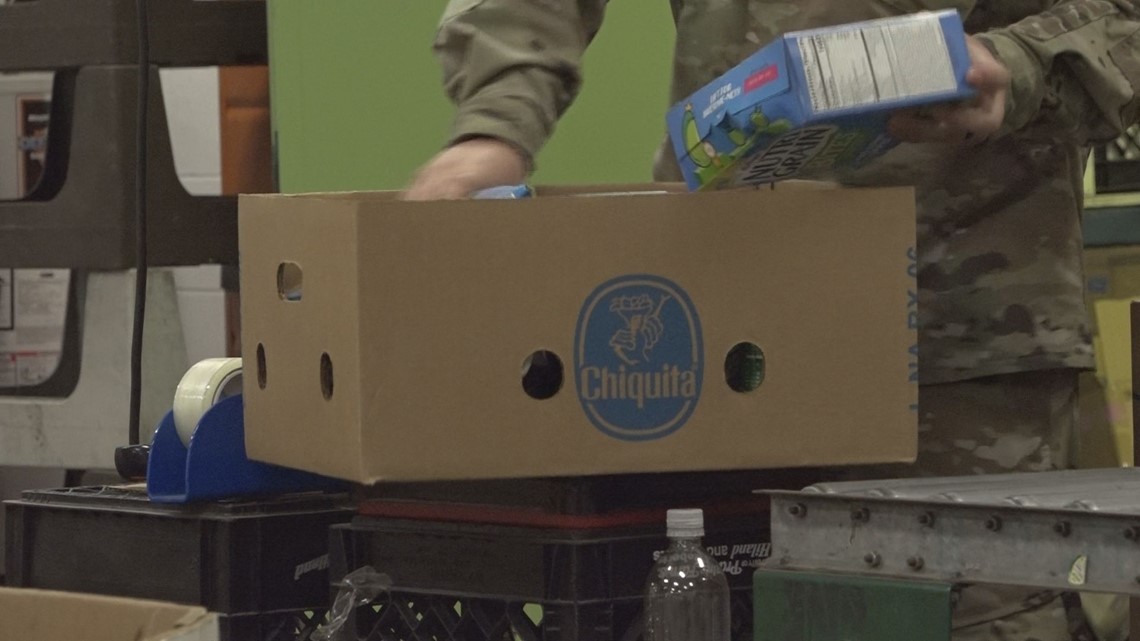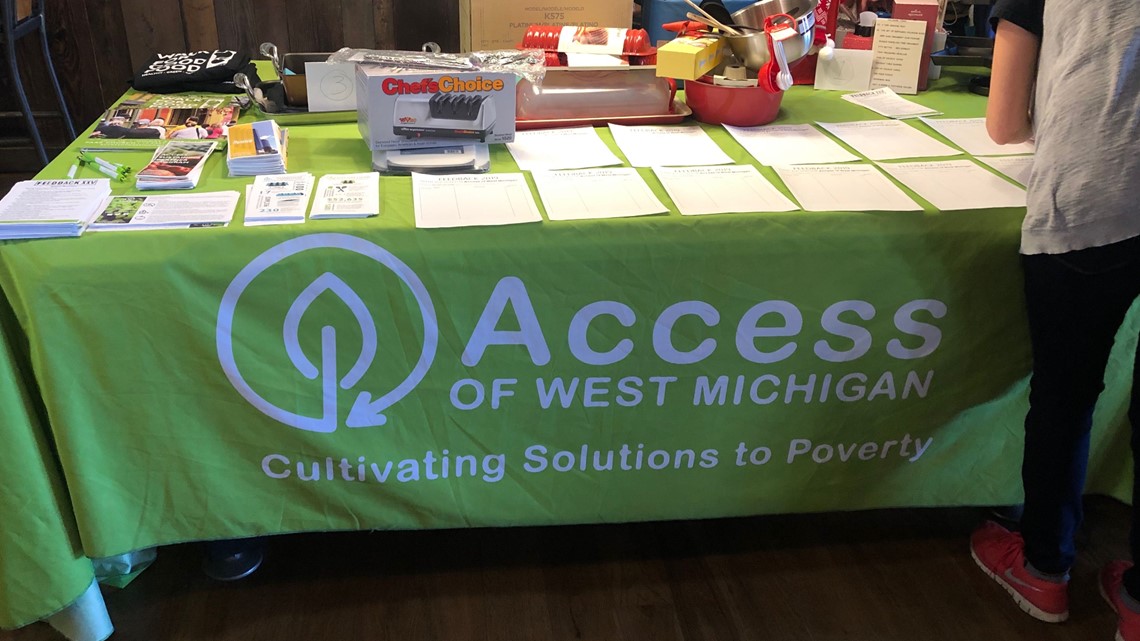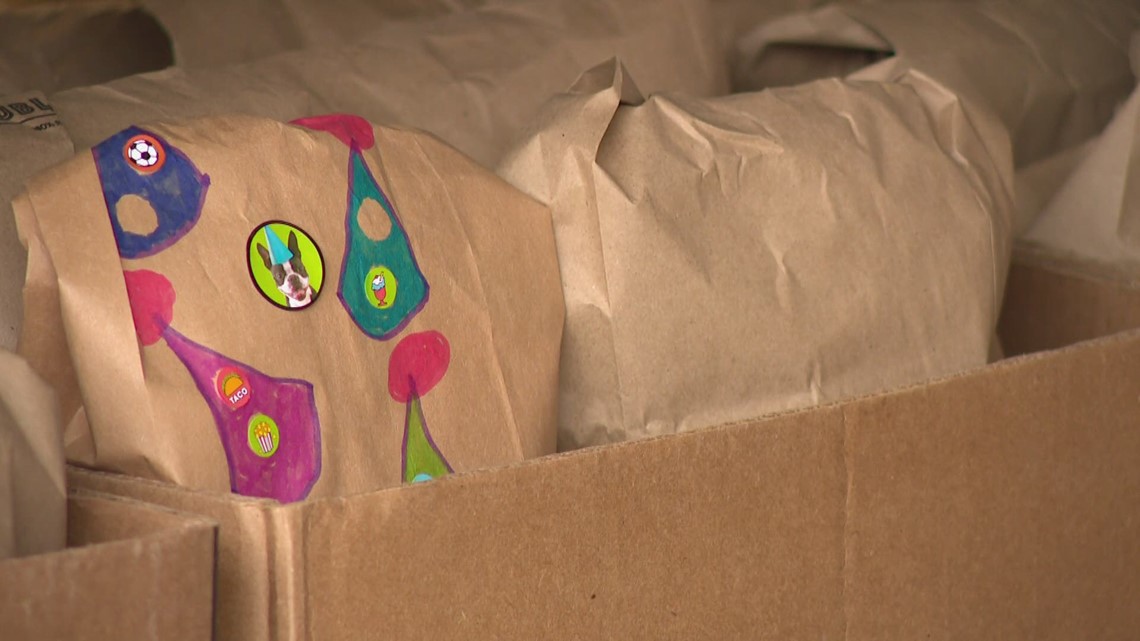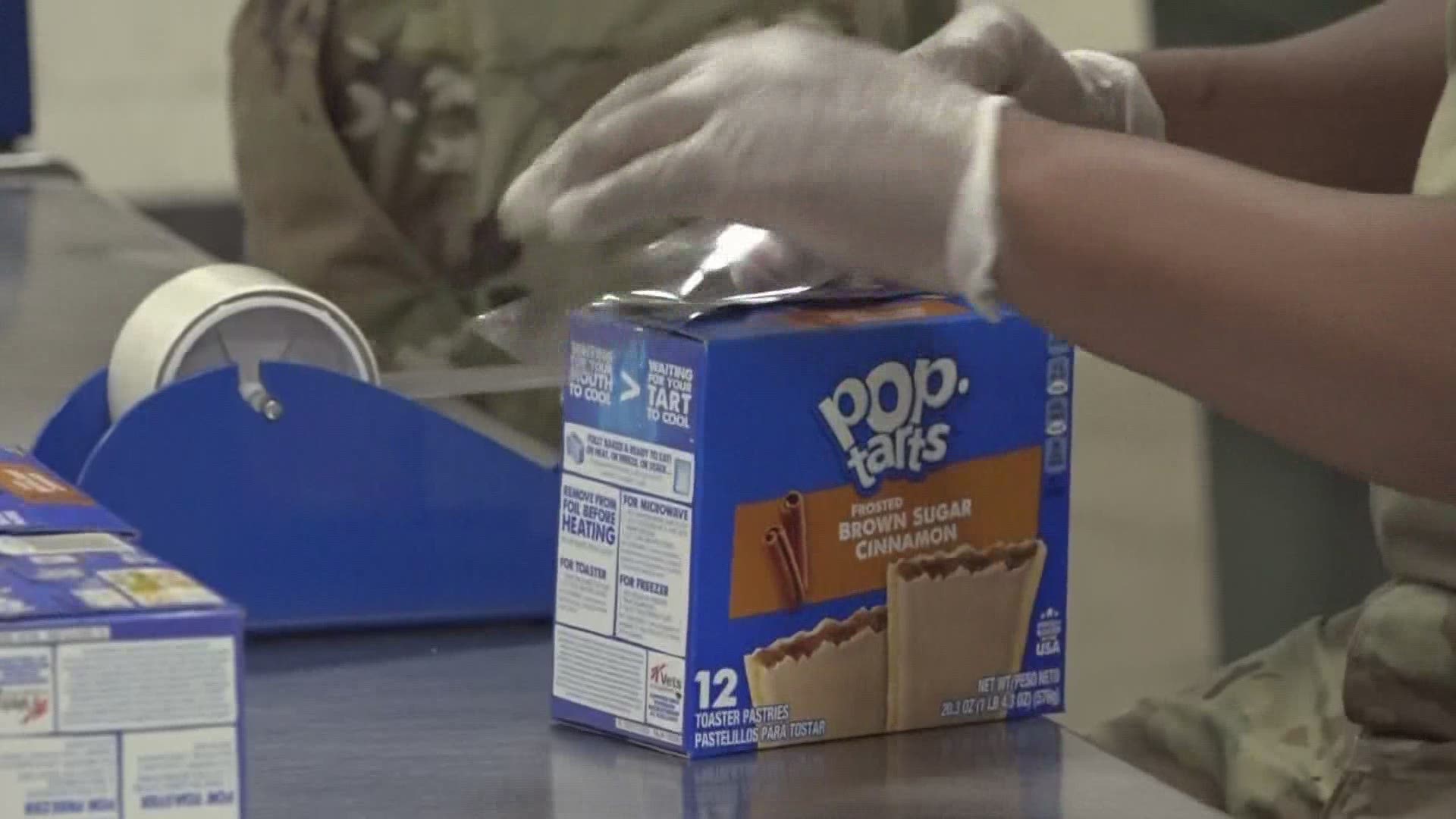GRAND RAPIDS, Mich. — Hunger and food insecurity have been a top concern for families since the COVID-19 crisis hit Michigan in March. Months later, that strain is not easing for many in West Michigan.
"Throughout COVID-19, the height of it, March through May, we distributed about 40 percent more food from last year," said Molly Kooi, communication manager for Feeding America West Michigan. "Which is quite a big increase."
One major reason for the continuous number of families needing food assistance is they are not back to work, or no longer working due to the pandemic. Many people are finding themselves searching for assistance for the first time.
"A lot of people we saw coming in the past few months were new," said Kooi, "Some of them are still facing hunger because of the repercussions of not working for a few months or not getting the unemployment benefits as soon as they needed them.'
From March to May 2019, Feeding America West Michigan distributed 4,897,426 pounds of food. In 2020, they gave out 6,825,414 pounds of food.
According to Feeding America West Michigan:
Percent of population facing hunger before COVID-19:
- Kent County: 11%
- Muskegon County: 14.1%
- Ottawa County:8.4%
Percent of population facing hunger afterCOVID-19:
- Kent County: 15.9%
- Muskegon County: 19.5%
- Ottawa County: 13.3%
"Hunger was pretty bad in West Michigan to begin with," said Kooi, "about 12 percent before COVID-19. We’re anticipating to distribute more food throughout the year and maybe into next year, compared to last year."
This is an emergent situation, but for many many in West Michigan food insecurity has been a struggle a long time.


RELATED: 13 Food for Families
"The effects of the global pandemic in our local community are really only being highlighted," said Erin Skidmore, the director for Good Food Systems, a program with Access of West Michigan. "A lot of the disparities and issues that we see right now have been happening for decades."
Skidmore said the charity food system created dozens of years ago was always intended for temporary use. She said there is enough food to go around within numerous charitable food organization, but now is the time to address what are some of the barriers to access that help.
"We also know that the charity food system is really wrapped up in systemic racism as well," said Skidmore. "And so we need to do work in the food system to address living wage for all. There's a lot of people working in farm and food labor that are not paid a living wage are not given benefits. And there's a racial component to all of that. This pandemic and the race relations that we see happening right now are completely tied in to the food system that we have."
Skidmore said one thing that was impressive to see was the collaborative energy of West Michigan that rallied to help the emergent need of families looking for food and other services when the crisis began. She hopes to be able to carry that energy into finding solutions to end reliance on charitable food services.


"So that next time a crisis happens, we can prevent a lot of the emergency need from from happening," said Skidmore. "We want to cast a long term vision for changing our food system, and not get stuck here in an emergency panic."
More basic needs organizations are busy helping people find assistance. The lines at United Way 211 have been busy, ringing from people looking for help for needs beyond even food.
"A lot of the 211 volume has been concentrated on housing, food access, tax preparations, and utilities," said Wende Randall, the director of the Kent County Essential Needs Task Force with United Way.
Randall said a few overlooked needs are help with personal care items, access to broadband and tech devices for virtual assistance, and mental and behavioral help.
"It's been really difficult for a lot of community members to work through all of the emotion," said Randall, "In some cases, the trauma of losing a job and not being sure where to turn to for emergency assistance, having to navigate systems that they've never worked through before."
A large concern for many families is what happens when programs such as unemployment, rental or mortgage assistance, or utility assistance ends.
"As those moratoriums are lifted," said Randall, "and as the shutoff reductions are lifted from the utilities, we're going to see a lot of people expressing need to help get assistance with their bills."
Another major concern for families is making sure their children are getting nutritious meals. For many kids, they get the majority of their calories at school with free or reduced lunches. According to Bridget Clark Whitney, President and CEO of Kids Food Basket, more than 90,000 children receive free or reduced lunches in Kent, Ottawa, Muskegon and Allegan counties.
"So many of our families already struggling on the barriers of poverty or potentially working and right at that poverty line, and this pandemic has really thrust them into poverty," said Clark Whitney. "We also need to face the harsh reality that a pandemic like this has put us in a recession, and will mean more need. Not just not now and in the Summer, but in the Fall and into 2021."
Kids Food Basket has distributed more than 300,00 healthy meals to children since schools shut down on March 12, 2020. Clark Whitney said the need has increased, as families run out of resources.


"One of our sites in Wyoming-Kentwood, where we were serving 500 meals a day," said Clark Whitney. "On a Tuesday afternoon, they called us and asked if we could increase from 500 meals a day to 3,000 meals a day the next day. That was because of the increase of demand in their site."
Back at Feeding America West Michigan, they are preparing their warehouse if the hunger needs dramatically increase over the next few months due to a spread of COVID-19.
"A big part of it is people who were hungry before all of this happened, are now worse off," said Kooi, "and there’s some who just haven’t bounced back yet, even if they’re at work. It’s not just like, oh, jobs are open we’re good to go. It’ll be a need for a while."
If you can help, 13 ON YOUR SIDE has partnered with several local organizations that help put food on West Michigan tables. Click here to help.
►Make it easy to keep up to date with more stories like this. Download the 13 ON YOUR SIDE app now.
Have a news tip? Email news@13onyourside.com, visit our Facebook page or Twitter. Subscribe to our YouTube channel.

